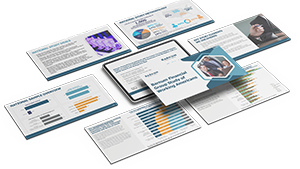
According to a 2019 study from the American Institute of Stress, 62% of Americans feel stressed about money on a regular basis. Luckily, financial wellness is the prescription to help cure this problem.
The Consumer Financial Protection Bureau defines financial wellness as “a state of being wherein you have control over day-to-day, month-to-month finances, have the capacity to absorb a financial shock, are on track to meet your financial goals, and have the financial freedom to make the choices that allow you to enjoy your life.”
That sounds like a lot, right? It is. But don’t despair. There are lots of resources available to help you get the knowledge and information you need to make good choices that will help you feel more secure about your financial future.
If you are reading this article, you are already doing one of the recommended steps for becoming more financially literate: subscribe to financial newsletters. This is a great way to be introduced to a wide range of topics that could be of value to your personal situation. You could then take to the internet to do a deeper dive into areas you really want to know more about or need help with.
Listening to financial podcasts can help you gain knowledge while multitasking, like while you are walking the dog or doing chores around the house. U.S. News recently published a list of its 10 Best Personal Finance Podcasts, including:
- You Need a Budget: Quick takes to stay motivated and on track financially.
- ChooseFI: Advice and inspiration to achieve financial independence.
- Marriage, Kids and Money: Financial content from a parent in the trenches.
- Friends Talk Money: Retirement and financial planning advice for those age 50 and older.
- How to Money: Advice and information geared toward millennials.
Attending financial wellness seminars on topics relevant to your situation can be incredibly impactful. Whether virtual or in person, these sessions can provide you with valuable information as well as the opportunity to have your questions answered in real time. Barnum is always offering seminars for clients and prospects on a wide range of topics. Check with your employer to see if they offer a financial wellness program and enroll for the sessions that interest you. You can also see if your community’s continuing education program has any offerings.
There is a vast array of personal finance books, some covering broad topics and some specific to certain life stages and financial issues. Here are a few that make many “best of” lists:
Your Money or Your Life: 9 Steps to Transforming Your Relationship with Money and Achieving Financial Independence by Vicki Robin and Joe Dominguez provides a helpful introduction to the “financial independence, retire early” (FIRE) movement which advocates frugality and smart investing in support of retiring young and devoting more time to your passions.
Smart Women Finish Rich by David Bach details how simple tweaks can lead to big savings, how small investments now can pay off big later, and how to stop living paycheck to paycheck.
Nudge: Improving Decisions About Health, Wealth, and Happiness by Richard H. Thaler and Cass R. Sunstein explains how we make decisions and how, by better understanding our reasoning, we can make better choices. FYI – Thaler won the Nobel Prize for his work in behavioral economics.
Broke Millennial: Stop Scraping by and Get Your Financial Life Together by Erin Lowry targets 20- and 30-somethings who are both paying off debt and beginning to plan for their future.
As with most things we want to learn or change, it is all about taking small steps that, when added together, achieve true progress. We encourage you to pick and choose from these tips and over time, you should find yourself with a lot more knowledge and, in turn, confidence. After all, that is the path to financial wellness.




